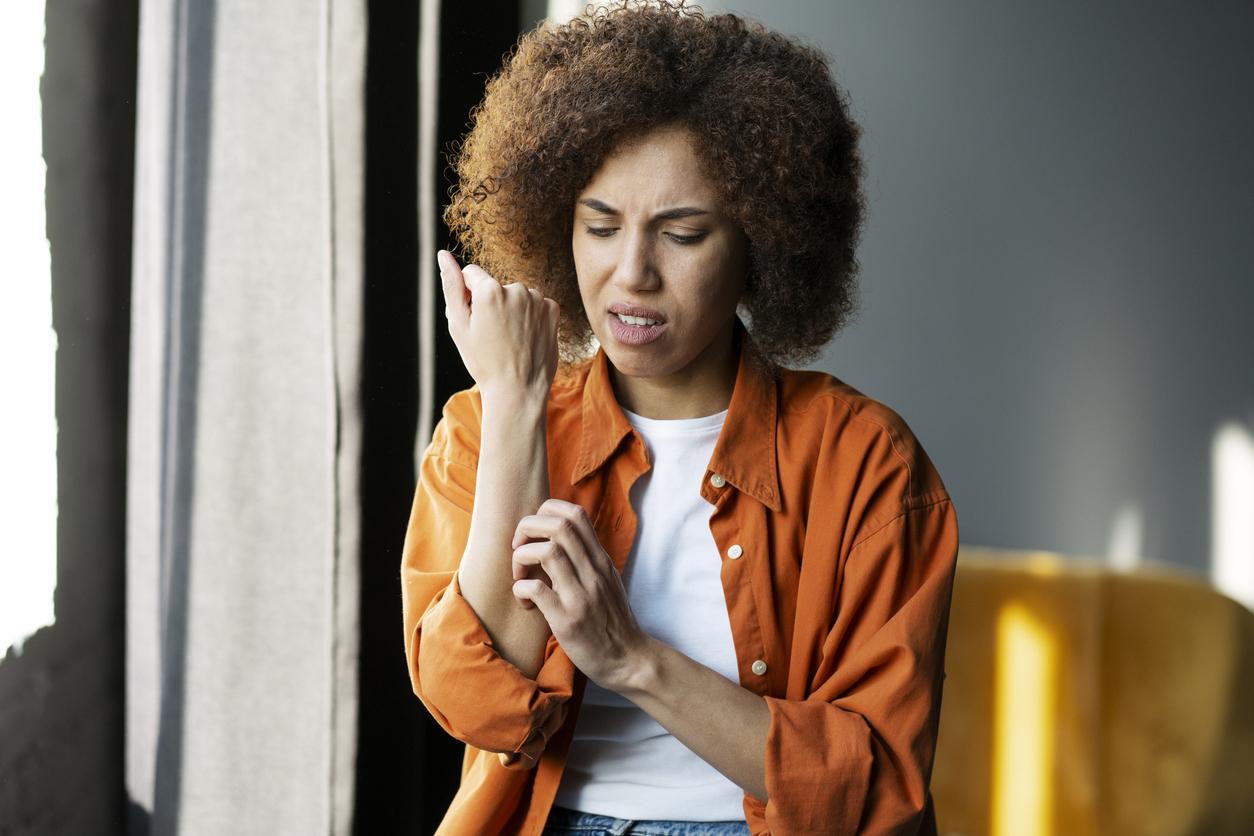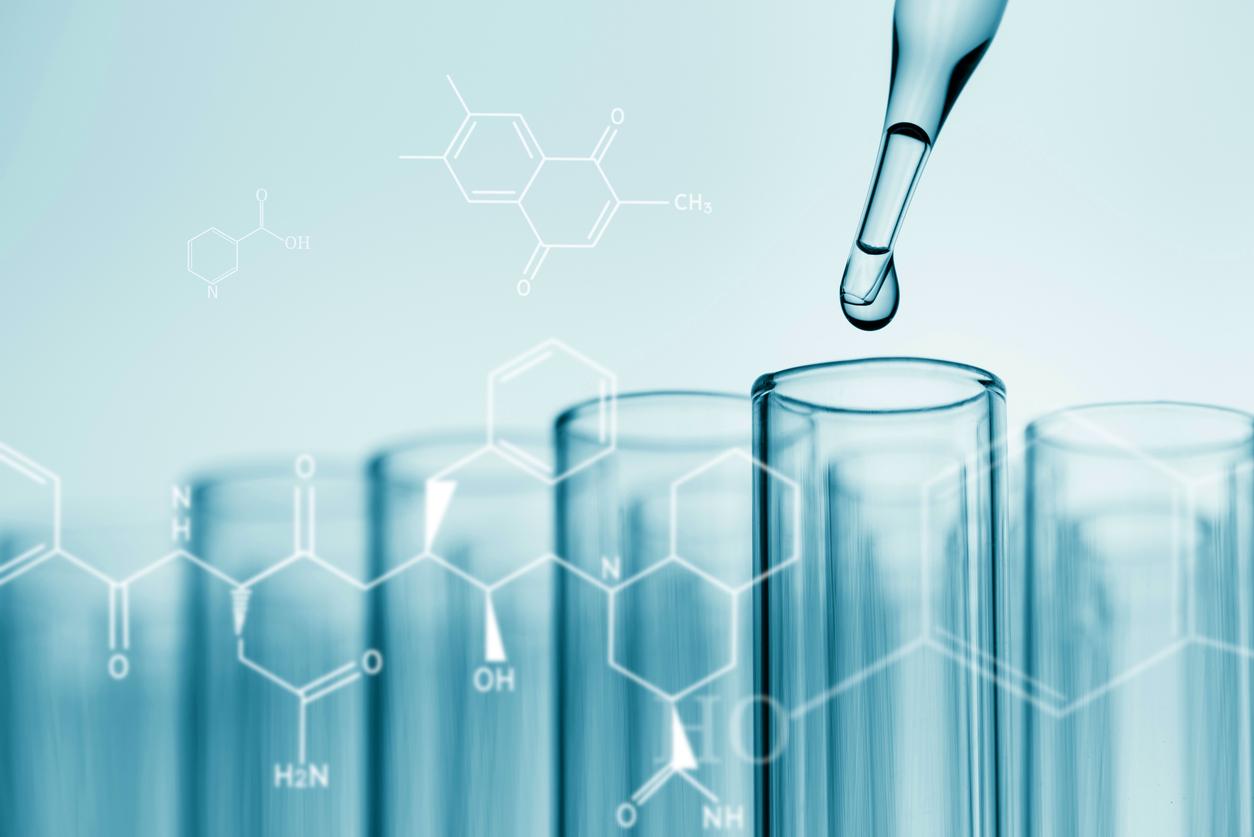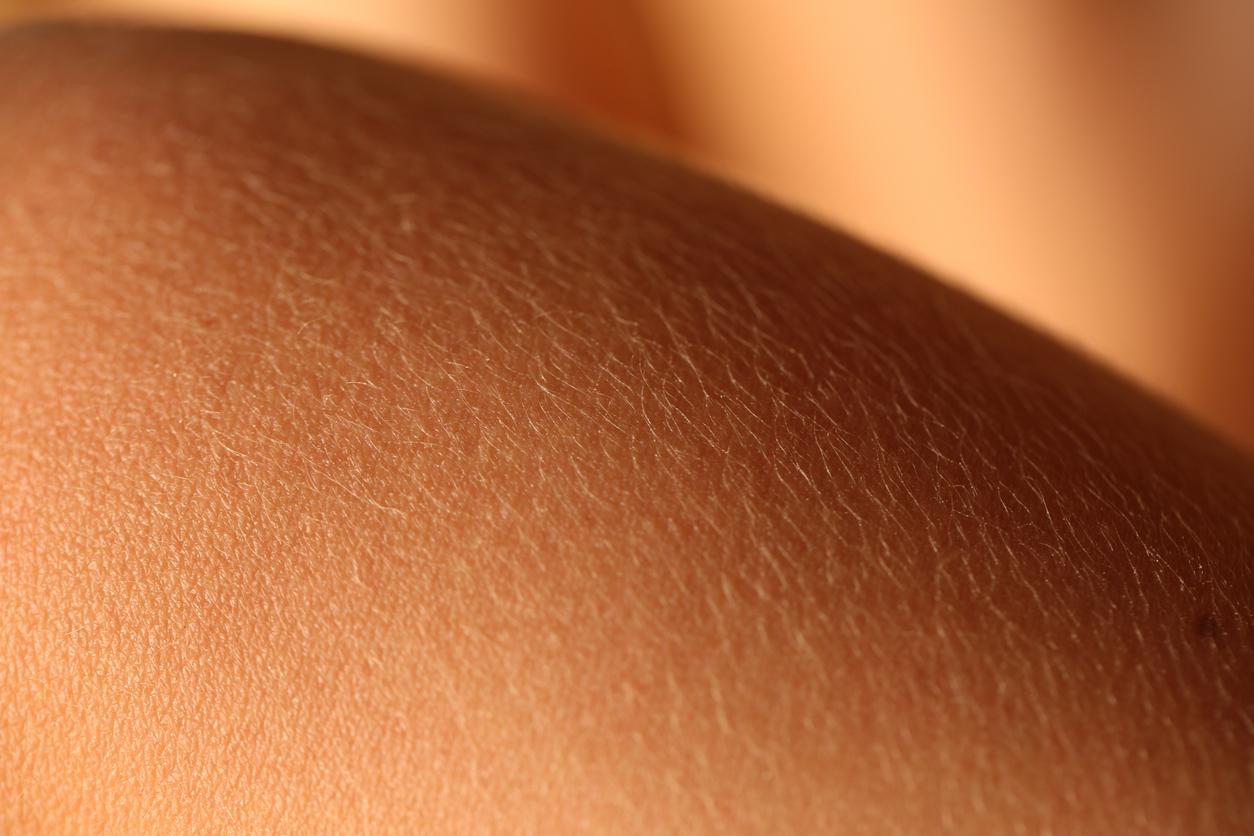Sensitive, irritable, even intolerant … these suffering skin can become a real headache to treat: 62% of women complain. “Most of them are fair skin, quite thin. More often dry skin, specifies Dr Martine Baspeyras, dermatologist. But normal or oily skin, which has been too stripped, can become it. “
What are the main symptoms?
Itching, heating, tightness, or even a burning sensation are common with sensitive skin. Sometimes you can’t see anything at all. “We do not observe any real visible pathology, except for a few pinkish or temporary redness. But the discomfort is almost permanent ”, explains
Dr Baspeyras. It is for this reason that for a long time the problem was not taken seriously. In some people,
on the other hand, flushes (temporary redness) and rashes (eruptions) appear, which can turn into a pathology such as rosacea.
Less redness with corrective makeup
What makes the skin react?
Sensitive and intolerant skin reacts to stimuli that have no effect on other skin types. This is even what characterizes it. A gust of wind, a few minutes cold, water that is too hard, and it turns red, heats up, tingles, becomes uncomfortable. The same phenomenon can also occur on contact with an overly perfumed product, following a slightly heavy shave …
How to explain this excessive sensitivity?
Three major biological mechanisms are responsible: alteration of the cutaneous barrier, hyperactivity of the cutaneous nervous system and oxidative stress (attack by free radicals). Indeed, the epidermis presents an alteration of its barrier function. This phenomenon promotes skin dehydration and especially the penetration of potentially irritating agents. In addition, the skin secretes excess neurotransmitters, as well as pro-inflammatory cytokines (substances involved in inflammation, produced by skin cells). These neurotransmitters invade the tissues and cause the vessels to dilate, creating discomfort and excessive reactivity.
There is also an overproduction of free radicals. And external aggressions do not help matters. Especially pollution, because, as soon as the skin barrier is altered, polluting particles can penetrate more easily. The cold, the heat, the wind, the tobacco and other stresses can also attack it.
What precautions should be taken?
Before applying a new product, you must learn to identify the possible presence of irritating ingredients: certain preservatives, retinoids
(or acidic vitamin A), fruit acids, chemical sun filters, essential oils, soaps … The less solicited by substances that risk irritating the skin, the better it is. In addition, for sensitive skin, fewer ingredients in a formula, it is also more safety! The best friends of sensitive skin are neutral products: without perfume, preservatives or surfactants and with the minimum of ingredients. By limiting their number, we reduce the risk of reaction. This is what specialized cosmetic brands are doing more and more, by offering products containing less than a dozen components! And sometimes by using processes and packaging (conditioning) which make it possible to do without preservatives.
How to take care of sensitive skin?
Do a very gentle cleansing. It is an essential gesture, which makes it possible to rid the skin of potential “aggressors”. However, care must be taken that it is not itself irritating. For Dr Haudrey Assier, dermatologist, “above all, you have to use gentle cleansers, without too ‘hard’ surfactants. And avoid aggressive gestures, such as scrubs and exfoliations ”.
- Do not stack too many products.
- Limit make-up to a minimum by choosing instead products from specific ranges formulated for intolerant skin (Avène, La Roche-Posay, etc.).
- Do not change the cream too often, to avoid intolerance to new components.
- Touch her skin as little as possible: the less it is stimulated, even by simple contact, the better it is.
- Do not rub it, but touch it with your fingertips, and do not use a sponge or press with the cotton while removing make-up.
- Avoid excessively hot baths, high pressure showers, and other sauna and steam sessions. hammam.
- Do not eat too many spicy dishes, limit alcoholic drinks.
- Avoid sudden changes in temperature if possible.
How to take care of your sensitive skin
How to determine your skin type?
And on the dermatological side, what solutions?
“To calm these skin types that any stress (examination, professional interview, etc.) can” excite “, I suggest doing Led sessions: red light above all is anti-inflammatory. Once a week for a month, then maintenance once a month, says Dr Baspeyras. This allows you to be quiet then for a few months. »Count 50 € per session, not reimbursed.
What if the redness, especially on the cheeks and nose, becomes permanent? It is either rosacea, which can be treated with vascular laser sessions; or rosacea, which is the last stage of sensitive skin. In this case, it is better to consult a dermatologist. The treatments are then medical, local in the form of gel or cream, or oral (antibiotics), if necessary.
What are the active ingredients to favor in creams?
Niacinamide, anti-inflammatory and soothing, promotes the synthesis of ceramides, lipids essential for the functioning of the skin barrier.
Thermal waters they also have an anti-inflammatory effect on the epidermis, because they are rich in trace elements such as selenium.
Oats limit inflammatory reactions by decreasing the release of neuropeptides through the skin.
Alpha-bisabolol (soothing) and licorice extracts (gluconolactone and glycyrrhetinic acid) help fight redness and irritation.
Plant extracts such as Roman chamomile, witch hazel, calendula and cornflower, known for their soothing and decongestant action, are present in organic cosmetics.
Plant pigments such as escin, rutin, red vine, regulate microcirculation and strengthen the vessels in the event of rosacea.
Couperosis and rosacea: dare the laser
How to treat rosacea and angiomas?
Our favorite treatments for sensitive skin
1. Regulator
Against rosacea, this fresh gel-cream slightly tinged with green contains a decongestant licorice extract. Endothélyol reduces redness, promotes microcirculation and attenuates blood vessels. With a new generation thermoregulating agent.
Sensifine cream AR, SVR, € 16.50 for 40 ml.
See the product About 1001 Pharmacies
2. Regenerating
In this fresh and organic texture, soothing pink clay and a natural complex that resources the skin, combining kombu algae, which stimulates cell renewal and rose floral water, which soothes and moisturizes.
Sleeping comforting cream Tendre Cocoon, Cattier, € 22.95 for 50 ml.
See the product On amazon
3. Anti-aging
The floral waters of cornflower, barley and witch hazel, soothing plants, are complemented by sweet almond and argan oils. The seaweed extract promotes the synthesis of collagen. The formula is designed to make the skin less responsive and smoother.
Soothing anti-aging cream, Florame, € 27.75 for 50 ml.
See the product On Mademoiselle Bio
4. Special makeup removal
This water composed of micelles (micro-emulsion) of plant origin combines a very mild surfactant, moisturizing glycerin and Rhealba oats, soothing and restorative.
Micellar cleansing and moisturizing water, Sensifluid, A-Derma, € 10.40 for 250 ml.
See the product Out of 1001 Pharmarcies
5. Anti-redness
This smooth cream contains three patented technologies, ginseng, algae extract and thermal water to replenish the skin barrier, soothe inflammation and increase the resistance of small vessels to temperature variations.
CC cream SPF 30 Roséliane, Uriage, € 13.50 for 40 ml.
See the product Out of 1001 Pharmarcies
Read also:
Thermal water, the good reasons to drink it for your skin
10 dermatological tips for beautiful skin
Which makeup remover to choose according to your skin type?
The best treatments adapted to sensitive skin
















